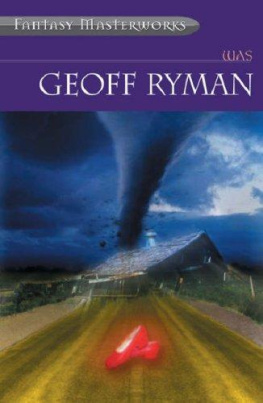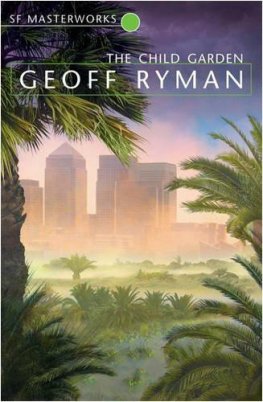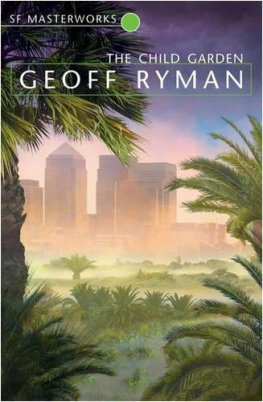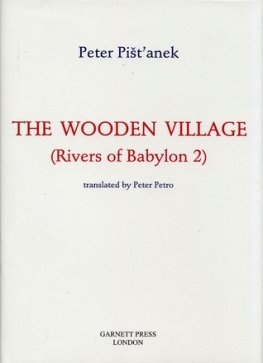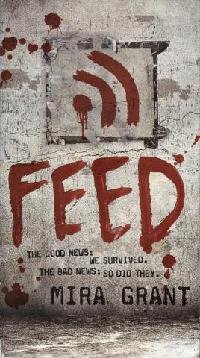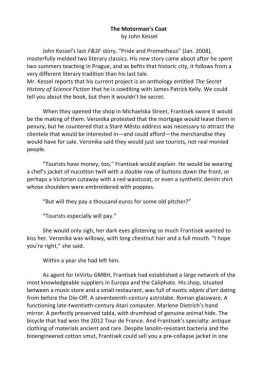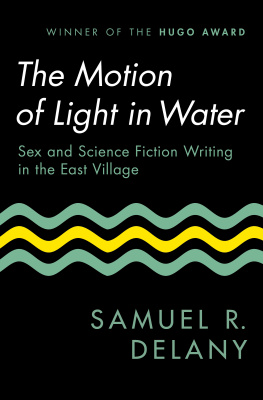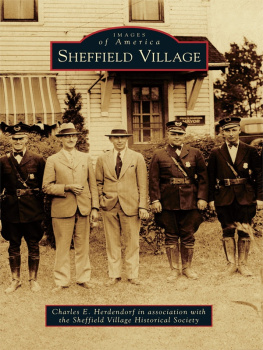
Geoff Ryman
Air (or Have Not Have)
Dedicated to Doris McPherson and what is left of (the original) Meadowvale, Ontario, Canada
Mae lived in the last village in the world to go online.
After that, everyone else went on Air.
Mae was the village's fashion expert. She advised on makeup, sold cosmetics, and provided good dresses. Every farmer's wife needed at least one good dress.
Mae would sketch what was being worn in the capital. She would always add a special touch: a lime-green scarf with sequins; or a lacy ruffle with colourful embroidery. A good dress was for display. 'We are a happier people and we can wear these gay colours,' Mae would advise.
'Yes, that is true,' her customer might reply, entranced that fashion expressed their happy culture. 'In the photographs, the Japanese women all look so solemn.'
'So full of themselves,' said Mae, and lowered her head and scowled, and she and her customer would laugh, feeling as sophisticated as anyone in the world.
Mae got her ideas as well as her mascara and lipsticks from her trips to the town. It was a long way and she needed to be driven. When Sunni Haseem offered to drive her down in exchange for a fashion expedition, Mae had to agree. Apart from anything else, Mae had a wedding dress to collect.
Sunni herself was from an old village family, but her husband was a beefy brute from farther down the hill. He puffed on cigarettes and his tanned fingers were as thick and weathered as the necks of turtles. In the backseat with Mae, Sunni giggled and prodded and gleamed with the thought of visiting town with her friend and confidante who was going to unleash her beauty secrets.
Mae smiled and whispered, promising much. 'I hope my source will be present today,' she said. 'She brings me my special colours, you cannot get them anywhere else. I don't ask where she gets them.' Mae lowered her eyes and her voice. 'I think her husband'
A dubious gesture, meaning that perhaps the goods were stolen, stolen from who knows? supplies meant for foreign diplomats? The tips of Mae's fingers rattled once, in provocation, across her client's arm.
The town was called Yeshibozkent, which meant Green Valley City. It was now approached through corridors of raw apartment blocks set on beige desert soil. It had billboards, a new jail, discos with mirror balls, illuminated shop signs, and Toyota jeeps that belched out blue smoke.
The town centre was as Mae remembered it from childhood. Traditional wooden houses crowded crookedly together. Wooden shingles covered the roofs and gables. The shop signs were tiny, faded, and sometimes hand-lettered. The old market square was still full of peasants selling vegetables laid out on mats. Middle-aged men still played chess outside tiny cafes; youths still prowled in packs.
There was still the public-address system. The address system barked out news and music from the top of the electricity poles. Its sounds drifted over the city, announcing public events or new initiatives against drug dealers. It told of progress on the new highway, and boasted of the well known entertainers who were visiting the town.
Mr Haseem parked near the market, and the address system seemed to enter Mae's lungs, like cigarette smoke, perfume, or hairspray. She stepped out of the van and breathed it in. The excitement of being in the city trembled in her belly. The address system made Mae's spirits rise as much as the bellowing of shoppers, farmers, and donkeys; as much as the smell of raw petrol and cut greenery and drains. She and her middle-aged client looked at each other and gasped and giggled at themselves.
'Now,' Mae said, stroking Sunni's hair, her cheek. 'It is time for a complete makeover. Let's really do you up. I cannot do as good a workup in the hills.'
Mae took her client to Halat's, the same hairdresser as Sunni might have gone to anyway. But Mae was greeted by Halat with cries and smiles and kisses on the cheek. That implied a promise that Mae's client would get special treatment. There was a pretence of consultancy. Mae offered advice, comments, cautions. Careful! she has such delicate skin! The hair could use more shaping there. And Halat hummed as if perceiving what had been hidden before and then agreed to give the client what she would otherwise have had. But Sunni's nails were soaking, and she sat back in the centre of attention, like a queen.
All of this allowed the hairdresser to charge more. Mae had never pressed her luck and asked for a cut. Something beady in Halat's eyes told Mae there would be no point. What Mae got out of it was standing, and that would lead to more work later.
With cucumbers over her eyes, Sunni was safely trapped. Mae announced, 'I just have a few errands to run. You relax and let all cares fall away.' She disappeared before Sunni could protest.
Mae ran to collect the dress. A disabled girl, a very good seamstress called Miss Soo, had opened up a tiny shop of her own.
Miss Soo was grateful for any business, poor thing, skinny as a rail and twisted. After the usual greetings, Miss Soo shifted around and hobbled and dragged her way to the back of the shop to fetch the dress. Her feet hissed sideways across the uneven concrete floor. Poor little thing, Mae thought. How can she sew?
Yet Miss Soo had a boyfriend in the fashion business genuinely in the fashion business, far away in the capital city, Balshang. The girl often showed Mae his photograph. It was like a magazine photograph. The boy was very handsome, with a shiny shirt and coiffed-up hair. She kept saying she was saving up money to join him. It was a mystery to Mae what such a boy was doing with a cripple for a girlfriend. Why did he keep contact with her? Publicly Mae would say to friends of the girl: It is the miracle of love, what a good heart he must have. Otherwise she kept her own counsel which was this: You would be very wise not to visit him in Balshang.
The boyfriend sent Miss Soo the patterns of dresses, photographs, magazines, or even whole catalogues. There was one particularly treasured thing; a showcase publication. The cover was like the lid of a box, and it showed in full colour the best of the nation's fashion design.
Models so rich and thin they looked like ghosts. They looked half asleep, as if the only place they carried the weight of their wealth was on their eyelids. It was like looking at Western or Japanese women, and yet these were their own people, so long-legged, so modern, so ethereal, as if they were made of air.
Mae hated the clothes. They looked like washing-up towels. Oatmeal or grey in one colour, and without a trace of adornment.
Mae sighed with lament. 'Why do these rich women go about in their underwear?'
The girl shuffled back with the dress, past piles of unsold oatmeal cloth. Miss Soo had a skinny face full of teeth, and she always looked like she was staring ahead in fear. 'If you are rich you have no need to try to look rich.' Her voice was soft. She made Mae feel like a peasant without meaning to. She made Mae yearn to escape herself, to be someone else, for the child was effortlessly talented, somehow effortlessly in touch with the outside world.
'Ah, yes,' Mae sighed. 'But my clients, you know, they live in the hills.' She shared a conspiratorial smile with the girl. 'Their taste! Speaking of which, let's have a look at my wedding cake of a dress.'
The dress was actually meant to look like a cake, all pink and white sugar icing, except that it kept moving all by itself. White wires with styrofoam bobbles on the ends were surrounded with clouds of white netting.
Next page

